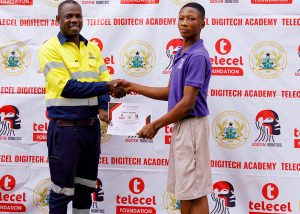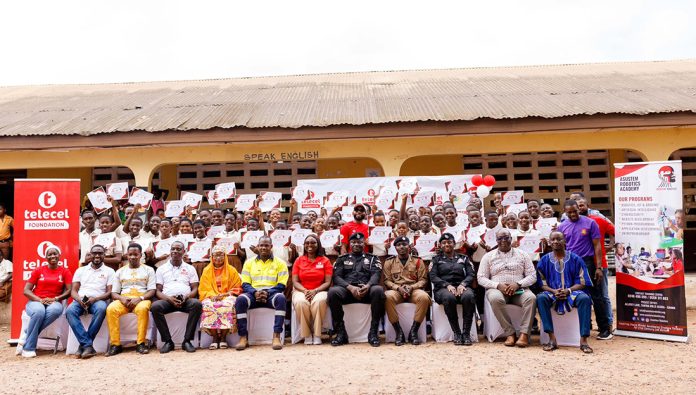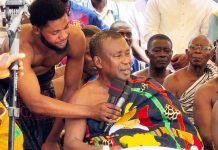Girls have dominated a three month transformative digital skill training programme at a graduation ceremony over the weekend.
The programme spearheaded by Gold Fields Ghana Foundation (GFGF) saw a total of 93 pupils drawn from two basic schools in Tarkwa with girls outnumbering their boys’ counterpart by 55 to 38. The graduation comes exactly two months after GFGF handed a smart laboratory to the New Atuabo community basic school, where teachers have been trained in robotics and the use of AI.

The 54-capacity lab serves students from Primary 5 through to JHS 3 in three different schools. The training programme equipped pupils of Brahabebome and New Aruabo Basic School, with hands on knowledge and training in programming, website designing, coding and robotics.
The initiative is dubbed TelecelDigiTech Academy and is geared towards bridging the gender gap in Science, Technology, Engineering and Mathematics (STEM) education and it is a collaboration between GFGF and Telecel.
The programme is part of Goldfields Ghana commitment to creating lasting value beyond mining by preparing the youth for careers in technology and engineering.
Speaking at the graduation ceremony, an official of GFGF said “today, we congratulate these 93 young individuals as they graduate from this cutting-edge skills development programme”.
According to the official, the dedication, curiosity, and determination of the graduands over the past weeks have been nothing short of inspiring.
“As they step forward with newfound skills in programming and robotics, we celebrate not just their achievements, but the bright futures they are building for themselves and their communities”.
Jacquelyn Makumator-Jones, Foundation and Sustainability Specialist at Telecel Ghana, said it was a joy to be in Tarkwa to celebrate the graduation of Cohort 2 of the DigiTech Academy.
“Today is a powerful reminder of what happens when young minds are given access, opportunity, and the right tools to create”, she stated.
She explained that, when the Telecel Ghana Foundation launched the DigiTech Academy as a small pilot in Ho about ten months ago, their vision was simple: break down barriers to digital skills, grow interest in technology and to show that young people can go beyond being consumers of technology and become creators, innovators, and problem-solvers for their communities.
Through 12 weeks of immersive learning, JacquelinMakumator-Jones indicated, DigiTech Academy introduced upper primary and Junior High School pupils to Science, Technology, Engineering and Mathematics (STEM) skills, including robotics, coding, website design and computer programming to complement what they had learnt in the classroom and connect them to the future of work.
“This is made possible through our partnerships with Asustem robotics in collaboration Goldfields Ghana Foundation, who helped us deliver hands-on practical learning experiences in Tarkwa and others”.









